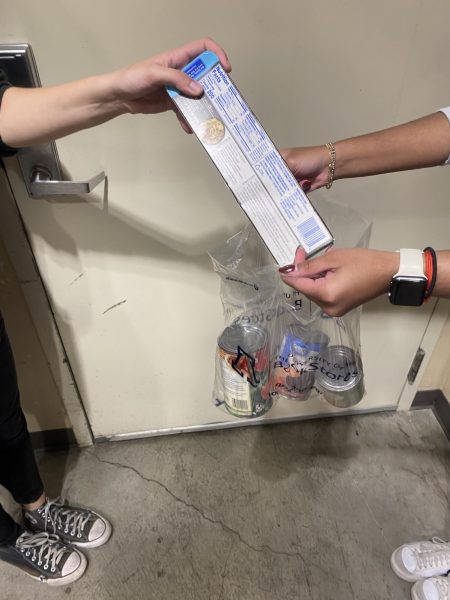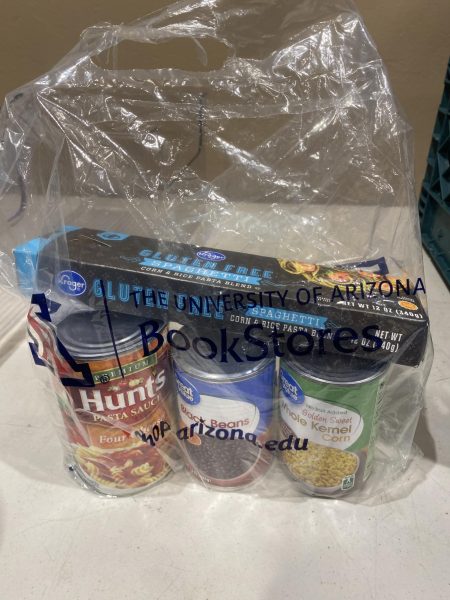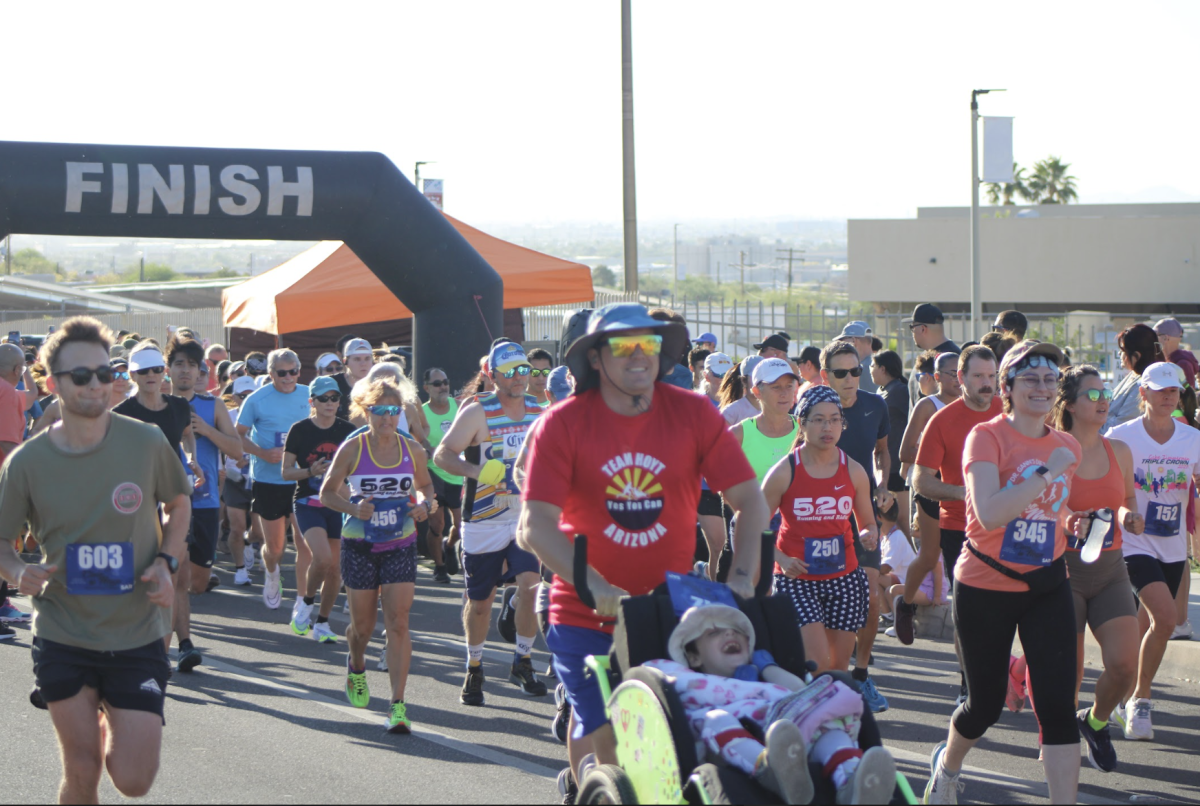After a dozen years on campus, the UA Campus Pantry remains one of the university’s best-kept secrets, often overlooked by the very students who could benefit from it most.
“I’m a senior and had no idea that Campus Pantry existed until this semester,” said Amaya Rosevear, a senior marketing major at the University of Arizona.
The Campus Pantry, tucked away on the first floor of the Student Union Memorial Center, is a lifeline for students experiencing food insecurity. Offering free supplemental groceries and essentials like fresh produce, canned goods, milk and hygiene products, the pantry helps alleviate the financial and logistical pressures of college life.
“This would have been a great resource for me to use all throughout college since I don’t have a car and getting groceries can be really difficult,” Rosevear added.
Originally operating out of a residence hall closet in 2012, the pantry has expanded its resources, moving into its current space in 2020. It offers a second, smaller location in the UA Health Sciences library basement, where students can pre-order food bags for easy pickup.


With UA having over 40,000 undergraduate students, the pantry has only seen about 3,200 visitors this semester, with roughly 20% of that number being staff/faculty.
Some students hesitate to use the pantry due to the stigma surrounding food insecurity.
“A lot of students don’t want to be seen waiting in line, or they feel like they aren’t needy enough—that someone else might need it more,” acknowledged Pete McGraw, the senior coordinator of basic needs.
The Campus Pantry staff strives to combat this stigma by creating a judgment-free environment. Students only need to swipe their CatCard, with no additional questions or verification required. They can visit twice a week and select items based on a simple point system.
“Once students find out that we don’t ask any questions or make you prove anything, they feel a lot better about coming through here,” McGraw said.
“I went to the pantry because my friend told me about it, and the people working there were super kind and welcoming,” said Nina Bonadonna, a UA senior. “I felt totally comfortable going there.”
Breaking down barriers and normalizing the use of resources like the Campus Pantry is essential.
“Bringing light to the fact that one in three college students are food insecure will make people realize how normal this really is,” said Bridgette Riebe, the pantry’s assistant director of basic needs. “If students start talking about the pantry in a positive light and with an empowerment approach, I think that will make a big difference.”
Although Rosevear discovered this towards the end of her college career, she is hopeful that the campus pantry community will continue to destigmatize the worries students have about going there.
“It’s totally normal to struggle with things like food and money when you’re in college,” she said. “When the school has resources like this to help students, they should really be used.”
The Campus Pantry is not only a resource for those in need but also an opportunity for students to give back. Volunteers are always welcome to assist with operations, fundraising, and outreach.
For more information, students can visit the Campus Pantry’s website (https://campuspantry.arizona.edu/), where they can find schedules, donation opportunities, and other ways to get involved.
Arizona Sonoran News is a news service of the University of Arizona School of Journalism.










